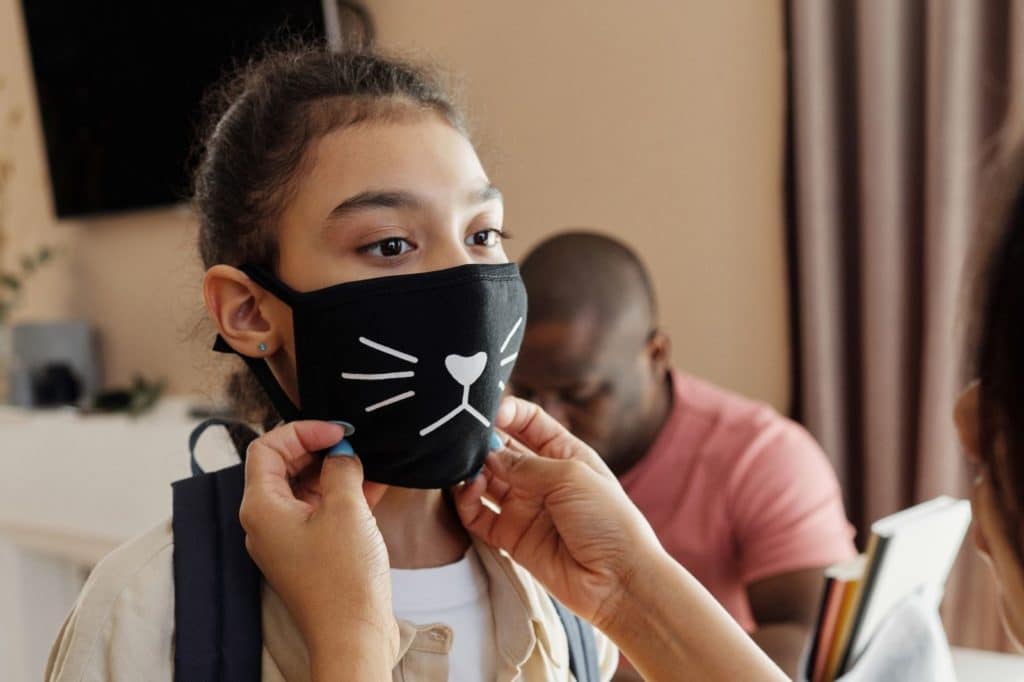COVID-19 was dramatic in many ways, including the frequent, unexpected changes we couldn’t control. More than ever, families experienced a feeling of helplessness. In the second part of an article from our interview with Kim Sayers, MA, LPC-S, Clinical Project Director at Communities in Schools – San Antonio (CIS-SA) we review the many challenges that were out of families’ control and what lessons and suggestions can be learned on how to cope effectively with these changes. The following lessons are also based on the feedback from Kim’s team of LPCs and LMSWs at CIS-SA.
What are some of the challenges that parents and students had no control over?
One of the most critical ways to cope with stress is to realize what can’t be controlled and to accept it. The COVID-19 crisis is full of such factors in the lives of parents and students. Here is a summary list of what no one could control during COVID-19:
- The COVID-19 crisis itself and the state of the world it brought: the local mandates regarding limited outings, how long it was going to last, and what was shown on the news or social media outlets about it.
- The shutting down of life as we knew it: cancelled social events, closures of safe places for children and families; churches, businesses, babysitters, daycare, family support, school, work.
- The family situation: the kids being home 24/7, lack of childcare, illness in the family, medical issues, limited family and friend socialization, complex family dynamics.
- The work situation: job-loss, loss of income, inability to get a job, job insecurity.
- The lack of some needed resources: lack of key products, lack of transportation, lack of technology options.
How can parents and students respond to the things they can’t control?
In some ways, COVID-19 offered an opportunity for families to learn how to cope and build resilience. All the CIS-SA counselors agreed with the response that “Though we cannot control the outside world, we can do our best to control our outlook and response.”
Advice to parents during these time abounded and the following suggestions from counselors may sound familiar. However, they’re not easy to implement and just taking one and focusing on it can make a huge difference. Here are some questions to reflect upon based on the CIS-SA team’s input of what is helpful to do to respond to the situation:
- How much do you expose yourself to a stressful self-conditioning? For example, if following the news, watching TV or spending time on social media leads you to lose your peace, can you choose to limit your consumption? Or is it overuse of coffee or alcohol? Or maybe engaging with a destructive relationship you can avoid? Become aware and make choices.
- How much to you ask for help? Schools, the city, healthcare systems, and local agencies like CIS-SA are going out of their way to respond to the crisis and connect families with useful resources. Do you know who to ask and what you can ask for? Are you connected with a CIS-SA staff or a local school counselor? Do you know what help you can get from a mental health professional if needed?
- How do you organize your life? Do you have a realistic daily routine? Do you have a list of the top challenges (be it food supplies, finding a job or technology) and a plan to overcome them? Who can help you?
- How do you build personal resilience? Do you have a set schedule of at least one or two activities that help you find calm such as: music, taking walks and other physical activities, reading a book, prayer/meditation, creative art activities, board games or video games, journaling, etc..?
- How do you find meaning? Can you focus on how the restrictions are helping to slow the spread of the virus rather than the inconvenience it may cause? Can you find activities that help others be safe and overcome their crisis? Can you find activities that make you feel creative?
- How do you manage your close relationships? Do you have regular open and honest conversations? Do you play together, laugh together or have fun moments planned? Do you set boundaries and respect them? Do you have healthy family rules at home (for instance, getting chores done, healthier bedtime routines, eating together as a family)?
More specifically for students, here is a list of questions to consider:
- Are you talking about problems? Are you asking for help?
- Do you have a schedule that you follow?
- Does your schedule include self care activities? (like: making sure to get enough sleep at night, but not oversleeping, limited screen time, social engagement)
To conclude, the following quotes from two CIS-SA counselors illustrate two basic ways that families can do well in such a crisis: asking for help and being compassionate with one another.
“I believe some of the challenges that they can control are lack of food, lack of hygiene products, and academic and technology challenges. The campuses are providing food for pick up and there are several agencies that are helping with food and hygiene products. The campuses are helping with academic and technology issues, such as, providing Chromebooks and hot spots and teachers and counselors are reaching out and meeting virtually with students regarding academic issues, graduation requirements, etc. I have witnessed faculty and staff going above and beyond to help the students be successful during this difficult time.”
“I think the most important thing is for both students and parents to be self-compassionate! Everyone should give themselves credit for pushing through and forgive themselves for any mistakes they make.”










